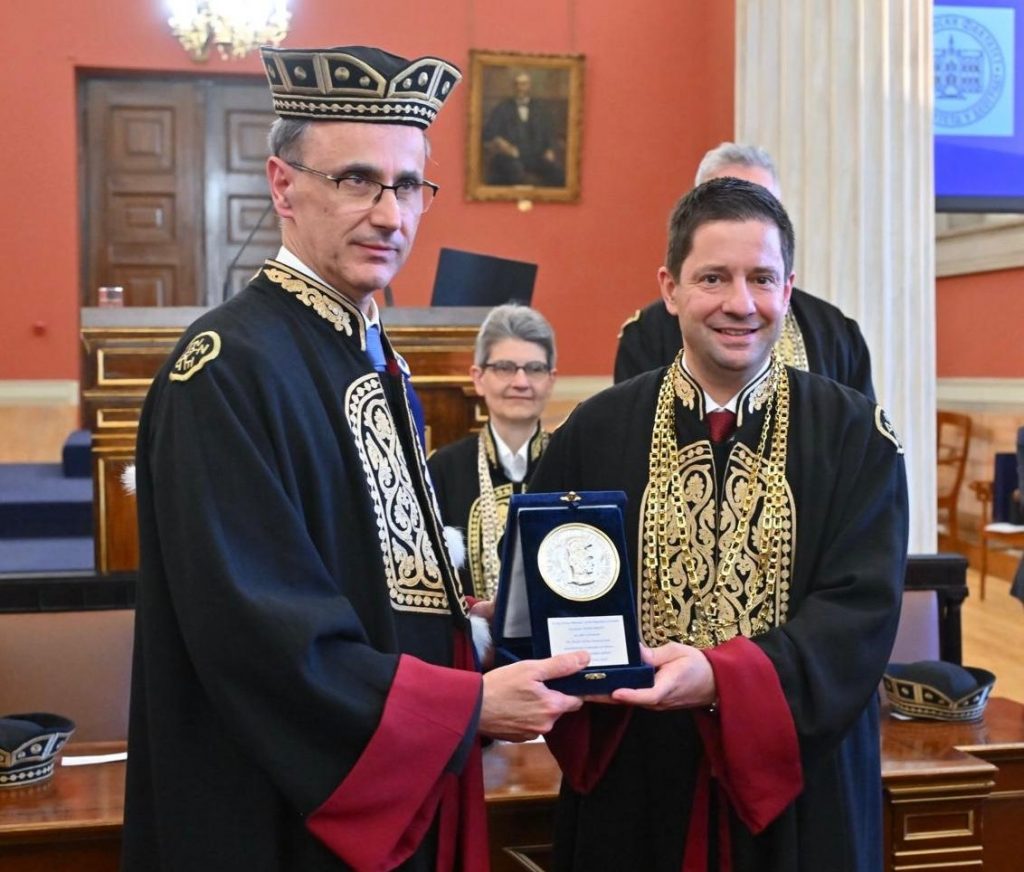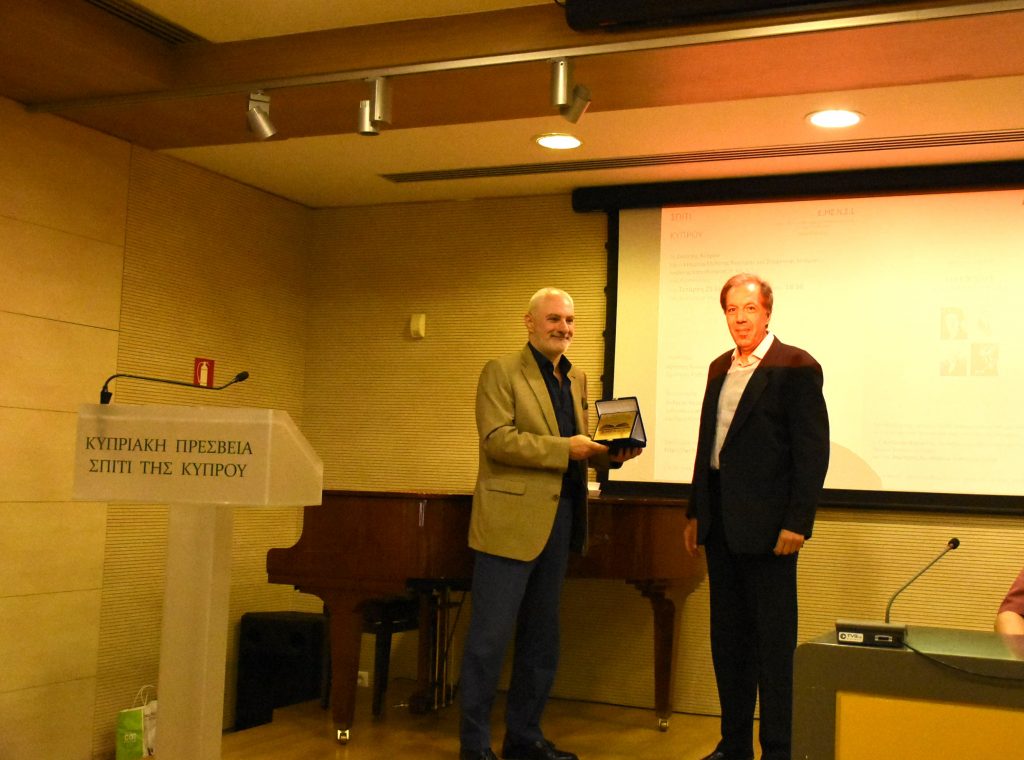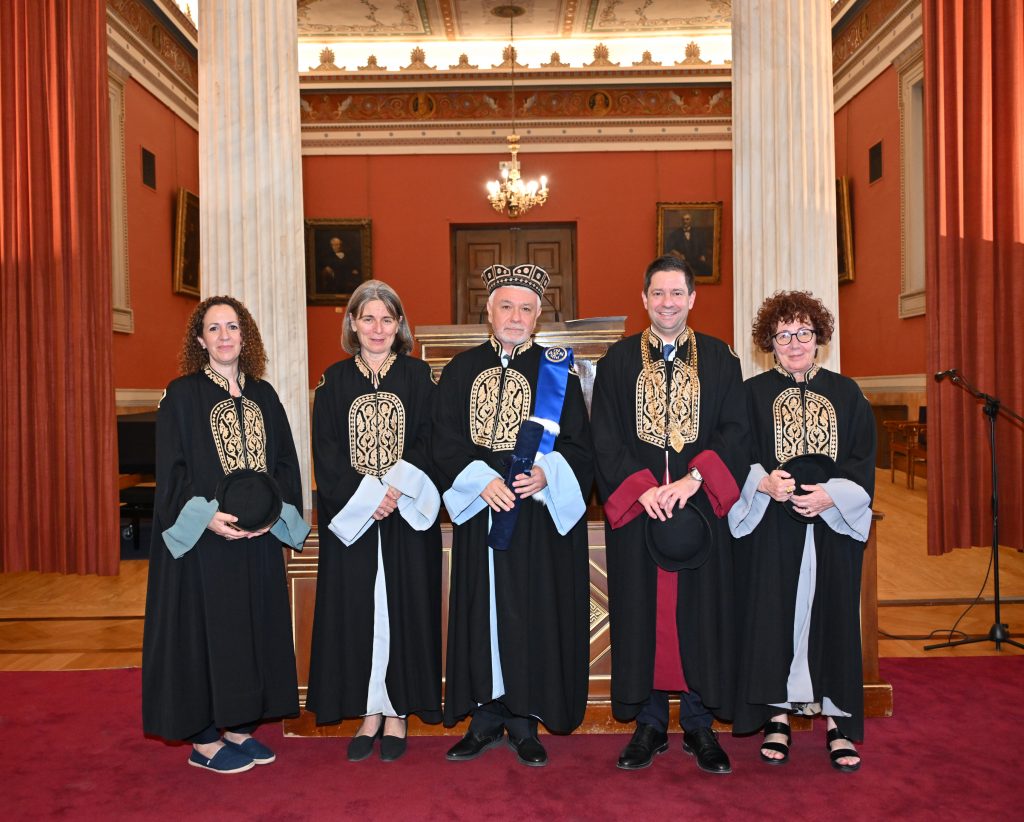Very Important Distinctions for The National and Kapodistrian University of Athens in Shanghai Ranking’s Global Ranking of Academic Subjects
https://www.shanghairanking.com/rankings/gras/2022
On July 18, 2022, Shanghai Jiao Tong University published the Global Ranking of Academic Subjects for Universities all around the world for the year 2022, in each broad scientific area and for particular academic subjects, as part of the Academic Ranking of World Universities (ARWU). According to the Shanghai Ranking, also referred to as the Shanghai List, the National and Kapodistrian University of Athens received notable distinctions in the ranking results for a second year consecutively. More specifically, the Institution for 2022 has 16 entries in the top Universities of each academic category out of a total of fifty-four (54) categories, compared to 15 entries in 2021. These 16 academic subjects effectively correspond to 10 Departments of the Institution compared to 8 Departments in 2021 (see table 1).
The following data are particularly worth mentioning:
- The School of Dentistry of N.K.U.A. makes its first appearance among the top 100 Universities in the world, ranking 76–100 in the subject of Dentistry & Oral Sciences. It should also be noted that it received an overall score of 89.9 out of 100 and performed admirably in the IC indicator (percentage of papers with international collaboration). The above-mentioned performance is outstanding and surprisingly surpasses the results of the top 12 Universities (including Harvard University, The University of Washington, King’s College London, et al.) in the academic subject of Dentistry & Oral Sciences.
- The School of Medicine climbs from ranks 201-300 in 2021 to ranks 101-150 as far as the academic subject of Clinical Medicine is concerned. With this very important result the School also holds the top rank among the four Greek Universities with Medical Schools that are part of the List.
- The Department of Informatics and Telecommunications made a major performance as well by climbing from ranks 201-300 in 2021 to ranks 101-150 in 2022 as far as the academic subject of Telecommunication Engineering is concerned.
- The Department of Nursing has achieved a significant success, ranking 151-200, with an overall score of 86.1 out of 100 and a particularly strong showing in the IC Indicator (percentage of papers with international collaboration). Additionally, it should be mentioned that of all Greek Universities’ Departments of Nursing, it is only the Department of Nursing of N.K.U.A. that is listed in this ranking.
- The Department of Physics for 2022 ranks 151-200 in the academic subject of Physics, whereas in the academic subject of Atmospheric Science it ranks 201-300.
- The Department of Pharmacy ranks 201-300 in the academic subject of Pharmacy & Pharmaceutical Sciences.
- The Department of Biology distinguishes itself in two academic subjects, ranking 201-300 in the academic subject of Human Biological Sciences, which marks its strongest performance.
- Correspondingly, the Department of Geology and Geoenvironment distinguishes itself in two academic subjects, namely Earth Sciences and Environmental Science & Engineering.
- The Department of Psychology, which is for the first time among the best in the world, ranks 301-400 in the academic subject of Psychology. It should also be noted that it is the only Department of Psychology of all Greek Universities that is listed in this ranking.
- The Department of Mathematics ranks 401-500 in the academic subject of Mathematics.
Table 1: Shanghai Ranking’s Global Ranking of Academic Subjects N.K.U.A.
| Department/School N.K.U.A. | Academic Subject | Rank in 2022 | Rank in 2021 | |
| 1. | School of Dentistry | Dentistry & Oral Sciences | 76-100 | 101-150 |
| 2. | School of Medicine | Clinical Medicine Public Health Medical Technology | 101-150 151-200 301-400 | 201-300 151-200 201-300 |
| 3. | Department of Informatics and Telecommunications | Telecommunication Engineering Electrical and Electronic Engineering | 101-150 401-500 | 201-300 401-500 |
| 4. | Department of Nursing | Nursing | 151-200 | 101-150 |
| 5. | Department of Physics | Physics Atmospheric Science | 151-200 201-300 | 101-150 201-300 |
| 6. | Department of Pharmacy | Pharmacy & Pharmaceutical Sciences | 201-300 | 201-300 |
| 7. | Department of Biology | Human Biological Sciences Biological Sciences | 201-300 301-400 | 201-300 301-400 |
| 8. | Department of Psychology | Psychology | 301-400 | – |
| 9. | Department of Geology and Geoenvironment | Earth Sciences Environmental Science & Engineering | 401-500 401-500 | 401-500 401-500 |
| 10. | Department of Mathematics | Mathematics | 401-500 | – |
As far as methodology is concerned, Universities are ranked according to 5 scientific categories (Natural Sciences, Engineering, Life Sciences, Medical Sciences and Social Sciences) and 54 academic sub-categories, with regard to their scientific specialization. Over 1800 Universities from 96 countries are included in the current year’s tables. The initial assessment involved 4000 Universities, 1800 out of which were finally singled out. The ranking makes use of a wide range of objective academic indicators and data in order to assess the performance of worldwide Universities in specified academic fields, including international academic awards, top academic achievements, research quality and international collaboration.
The indicators upon which the ranking is based are listed below:
Research Output: The amount of the most influential journal publications is an important indicator of a University’s research production in each scientific field. Q1 represents the number of publications of an Institution οn a specific academic subject in journals with a high Journal Impact Factor Quartile, i.e. the ones which were classified in the Q1 quartile for 2016-2020 (Q1 Indicator).
Research Impact: It concerns the assessment of the average impact of each paper. The normalization is based on the number of citations received by each paper published on a given topic. Basically, it is the ratio of citations received by a published paper to the average number of citations received by papers of the same category and kind published in the same year by a Higher Educational Institution in a certain academic subject between 2016 and 2020. A CNCI value of 1 (CNCI=1) represents performance at par with the world average. Only values above 1 are considered (CNCI Indicator).
International Collaboration: This indicator assesses the proportion of internationally collaborated papers on a specific topic, which were published by a University. It is determined by dividing the number of publications having a combination of at least two country addresses by the total number of publications a University produced in the relevant scientific field between 2016 and 2020 (IC Indicator).
Research Quality: This factor is based on how many papers a University’s Teaching and Research Staff members published in prestigious academic journals between 2016 and 2020. (TOP Indicator).
International Academic Awards: This indicator looks at how many Teaching and Research Staff members of a Higher Educational Institution have received significant awards/distinctions in an academic subject from 1981 onwards (AWARD Indicator).
It should be mentioned that a University must have a minimum number of publications for the years 2016-2020 in order for it to be ranked in such an assessment. The minimum number of publications varies by academic subject and might be as low as 25 (e.g. in the academic subjects of Aerospace Engineering, Mechanical Engineering, Communication, Public Administration, etc.) or as high as 200 (e.g. in the academic subjects of Physics, Biological Sciences, Chemistry, Clinical Medicine, etc.). The study of the publications is then performed using a model that assigns values and weights based on five Indicators, from which model a weighted average is derived for each subject and each University independently. The highest scoring Institution is then given a score of 100 for each Indicator, so the scores of the remaining Institutions are calculated as a percentage of the top score. Web of Science and InCites platforms are being used to retrieve bibliometric data.
The N.K.U.A.’s Rector and Vice-Rectors would like to extend their heartfelt congratulations to all of the academic community’s members, as each and every one of them has made a substantial contribution to the achievement of the aforementioned highly honourable results for the Institution and its Departments through their significant and multifaceted scientific and research work. These accomplishments are even more important taken into account the challenges and obstacles faced in carrying out the Institution’s research, teaching, and administrative functions. All the above, in circumstances of increased workload for the Teaching and Research Staff members of our University, who, in an extremely short period of time, were asked to adapt their teaching and research activities to distance learning conditions, while many of them assumed important roles both in committees and in healthcare structures to address the consequences of the COVID-19 pandemic.
We commit ourselves to continue—with all our might—the effort to promote the enormous scientific and research work of the National and Kapodistrian University of Athens, a work that both benefits and positively affects the global community as a whole.
Thanos Dimopoulos
Rector












![Συναυλία Jazz του Τμήματος Μουσικών Σπουδών ΕΚΠΑ [2 Ιουλίου]](https://hub.uoa.gr/wp-content/uploads/2025/06/Jazz-night-cover-1024x576.jpg)




